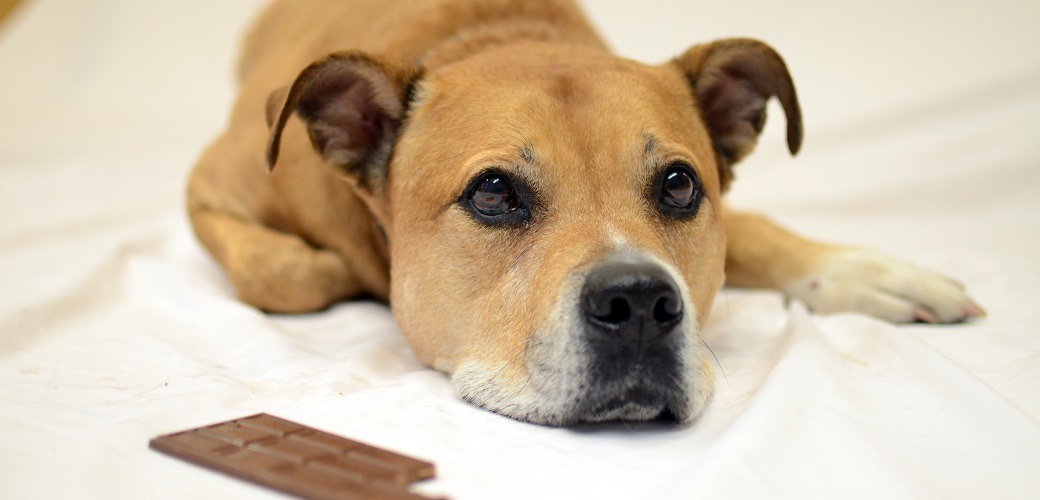Why the Smallest Amount of Chocolate is Sending Pets to the E.R.
October 29, 2018

Keep your furry loves safe this Halloween with these tips from Advanced Veterinary Care Center in Davie!
The emergency veterinarians at Advanced Veterinary Care Center (AVCC) in Davie are urging pet owners to keep their four-legged friends away from chocolate this Halloween. “Chocolate toxicity is a very common veterinary emergency,” according to Dr. Jon Rappaport, Co-Medical Director at AVCC. And, not all chocolate is created equal. A 60 pound dog can see moderate signs of chocolate toxicity after ingesting as little as 1.5 oz. of bakers chocolate versus 8 oz. of milk chocolate. “Pet parents may see hyperactivity, agitation, restlessness, vomiting, and muscle tremors that can progress to seizure activity,” adds Dr. Rappaport. “What pet owners may not see is an elevation in heart rate or abnormal heart rhythms. In some instances, they can also be excessively thirsty.”
Here is a ranking of chocolate from most toxic to least toxic:
- Cocoa Powder
- Baking Chocolate
- Dark Chocolate (which is 10 times more toxic than milk chocolate)
- Semisweet Chocolate
- Milk Chocolate
- White chocolate
Even if the pet eats just a little bit of chocolate and not enough to cause toxicity, sometimes the fat content of the chocolate is another concern. That can lead to pancreatitis, which in most cases can be mild and manageable. But, in some cases it can be severe and life threatening. “The safest thing you can do if you know your pet has eaten chocolate is to contact your veterinarian or the Animal Poison Control Center,” urges Dr. Rappaport.
So, why can humans eat chocolate but not pets?
Chocolate contains caffeine and theobromine. Dogs have a high sensitivity to those compounds which causes toxicity. In general, the darker and more bitter the chocolate, the greater the concern.
What else should we know to keep our pets safe this Halloween?
It’s best to keep your pet away from the front door on Halloween. “There’s the fear factor when someone opens a door and a dog is not used to seeing someone in costume,” advises Dr. Rappaport. Dogs can react fearful in a number of ways, creating yet another visit to the E.R. “The dog could bite their owner or anything in proximity, including the trick-or-treater,” adds Dr. Rappaport. “They could also run out of the house, get lost or get hit by a car.” Play it safe this Halloween and keep your pets in a comfortable place away from your door.
From all of us at Advanced Veterinary Care Center, we wish you a fun and safe Halloween!
To learn more about Advanced Veterinary Care Center in Davie and meet the team, click here.
Back to Blog Post